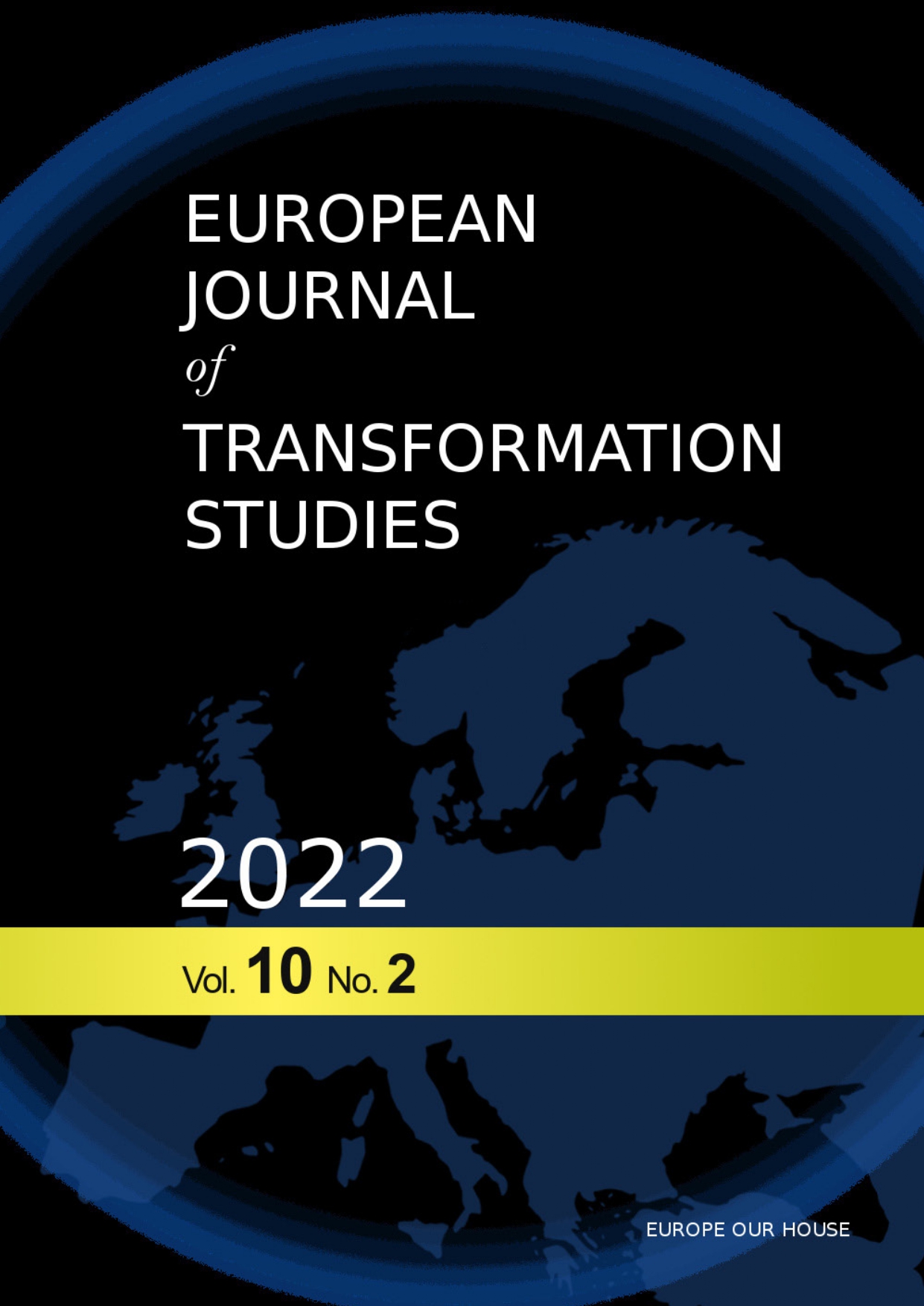Problems and perspectives of the limited integration in the globalization processes of the Mena region
Słowa kluczowe:
Mena, Integration, Globalization, Private Sector, Banking SystemAbstrakt
The paper provides an overview of the the MENA (Middle East and North Africa) area. The aims is, through the analysis of the complex political and economic scenario, to understand the lack of integration and participation to the globalization process of this region. Concrete development will only be possible through a significant expan-sion of the private sector, which, however, cannot play a leading role in the absence of a reliable banking system. Positive political changes will be an essential complement to the economic transition, especially as civil society seems to increasingly demand them.
Downloads
Bibliografia
Abed G.T., Davoodi H.R. (2003), Challenges of Growth and Globalization in the Middle East and North Africa, International Monetary Fund, 2003.
Aliboni R., Guazzone L. (2004), Democracy in the Arab Countries and the West, Mediterranean, in “Politics”, Vol. 9, no. 1, 2004.
Aliboni R. (2018), L’evoluzione geopolitica nel Medioriente, Rapporto sulle Economie del Mediterraneo ISSM.
Amato V. (2012), Global 2.0. Geografie della crisi e del mutamento, Roma, Aracne.
Barkhordari S., Fattahi M., Naser A. A. (2019), The Impact of Knowledge-Based Economy on Growth Performance: Evidence from MENA Countries, Journal of Knowledge Economy, 10, pp.1168–1182, 2019.
Bauer S.L. (2010), International Development Cooperation in the MENA Region: Transformation as Western Construction of Modernity, Paper for Discussion at DOT2010: German Orientalist Congress, University of Marburg, 20-24 September.
Betts R.F. (2009), La decolonizzazione, Bologna, il Mulino, 2007.Blominvest Bank, Islamic banking in the MENA Region, Beirut.
Campanini M. (2010), Storia del Medio Oriente, Bologna, il Mulino.
Capasso S. (2019), Rapporto sulle Economie del Mediterraneo, ISMED CNR.
Carothers T. (2005), A Better Way to Support Middle East Reform, Policy Brief, Carnegie Endowment for Peace.
Dacrema E., Talbot V. (2020), The Mena Region vs Covid-19: One Challenge, Common Strategies?, Ispi Dossier.
Dalacoura K. (2019), Women and gender in the Middle East and North Africa: mapping the field and addressing policy dilemmas at the post-2011 juncture, Menara Final Report, n.3.
Erian E., Fischer M.S. (1996), Is MENA a Region? The Scope for Regional Integration, International Monetary Fund Working Paper 96/30.
Ferragina A. M., Nunziante G. (2018), Disparità e ineguaglianze tra i territori all’interno dell’area Mediterranea, Rapporto sulle Economie del Mediterraneo ISSM.
Forte L., Canitano G., M. R. Carli (2018), Crescita economica, produzione manifatturiera e commercio estero nei paesi del Mediterraneo: differenze e complementarietà tra paesi euro- mediterranei e paesi della sponda sud ed est del Bacino, Rapporto sulle Economie del Mediterraneo ISSM.
Forte L., Canitano G. (2019), Lo scenario energetico futuro, Rapporto sulle Economie del Mediterraneo ISMED CNR.
Göll E., Zwiers J. (2018), Technological Trends in the Mena Region: The cases of Digitalization and Information And Communications Technology (Ict), Menara Final Report, n.23.
Henry C.M., Springborg R. (2001), Globalization and the Politics of Development in the Middle East, Cambridge, Cambridge University Press.
Middle East and North Africa Regional Architecture-MENARA (2019), Mapping Geopolitical Shifts, Regional Order and Domestic Transformations. Regional Dynamics in the Mena Region, European Policy Brief.
Nazier H. (2019), Women’s Economic Empowerment: An Overview for the MENA Region, Iemed Mditerranean Yearbook.
Nunnenkamp P. (2004), Why Economic Growth Has Been Weak in Arab Countries: The Role of Exogenous Shocks, Economic Policy Failure and Institutional Deficiencies, in “Journal of Development and Economic Policy” 7(2).
Oecd (2018), Trends in trade and investment policies in the MENA region, MENA-OECD Working Group on Investment and Trade.
Rabah A., Senbet L. W. (2020), Transforming Finance in the Middle East and North Africa, Policy Research Working Paper, World Bank Group.
Sen A. (1999), Lo sviluppo è libertà, Milano, Mondadori.
Transparency International (2019), Annual Report, Berlin, Transparency International.
UNDP, Arab Human Development Report, United Nations Development Programme, Arab Fund for Economic and Social Development, various years.
World Bank (2020), How transparency can help Middle East and North Africa, Mena Economic Update, Washington D.C., The World Bank.
World Bank (2007), Making the Most of Scarcity: Accountability for Better Water Management Results in the Middle East and North Africa, Washington D.C., The World Bank.
World Bank (2020), Opening Doors: Gender Equality and Development in the Middle East and North Africa, Washington D.C., The World Bank.
World Bank (2005), Public Infrastructure and Private Investment in the Middle East and North Africa, Washington D.C., The World Bank.
World Bank (2019), Reaching New Heights: Promoting Fair Competition in the Middle East and North Africa, Mena Economic Update, Washington D.C., The World Bank.
World Bank (2009), Tapping a Hidden Resource, Energy Efficiency in the Middle East and North Africa, Washington D.C., The World Bank.
Yalta A.Y., Yalta T. (2019), Determinants of Economic Complexity in MENA Countries, erf.org,.

 Uniwersyteckie Czasopisma Naukowe
Uniwersyteckie Czasopisma Naukowe



